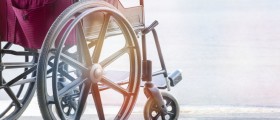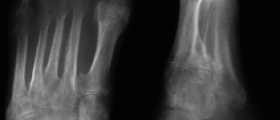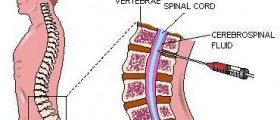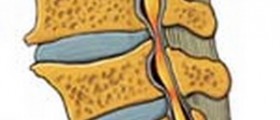
What Causes Paralysis?
Inability to move one or several muscles in the body isknown as paralysis. It is often known to cause a loss of feeling in the areas ofthe body affected by this problem.
Trauma to the nervous system, the brain or to the nerves isone of the potential causes of paralysis. Stroke is another reason for inabilityto move the muscles. Different diseases may also be responsible for paralysis. Spinabifida is a birth defect, affecting the development of the spinal cord which maylead to paralysis. Polio infection may also lead to poliomyelitis and cause thepatients to experience inability to move. Additionally, some other diseases mightprovoke paralysis and these include peroneal dystrophy, amyotrophic lateralsclerosis (ALS, or Lou Gehrig's disease), damage to the facial nerve caused byBell’s palsy and Guillain-Barre syndrome.
Paralysis may be a transient or a permanent condition, dependingon the root cause(s). Type of paralysis also depends on the cause of thecondition. Unilateral paralysis is the term used to describe paralysis whichaffects just one side of the body. Paralysis that affects both sides of thebody is called bilateral. There is alsosomething known as the weakness of one side of the body and this medicalcondition is known as hemiplegia. Someone who had a stroke may also experience generalizedweakness and the medical term for this problem is global paralysis.
Spinal Cord Injuries
Paralysis caused by the damage to the spinal cord isconsidered to be the most serious of all. The type and level of the injurydetermine the effects the patient will experience. A person who had trauma tothe upper part of the spinal cord may suffer from quadriplegia. This conditionaffects all limbs in the body and the patient can’t move his legs or arms, noteven for a millimeter in any direction. Serious cases of paralysis may causethe patient to get fed through feeding tubes and to need medical assistance foreverything, because they can’t feel anything of perform any voluntary movementin affected parts of the body. Traumas to the lower part of the spinal cordusually lead to paraplegia, which is characterized by the inability to move eitherlegs or arms.
Many people experienced injuries of the spinal cord in caraccidents or as the result of gunshots. Mentioned diseases and medicalconditions may also be the cause of traumas to the spinal cord, as well as themedical malpractice.








-Causes,-Symptoms,-Diagnosis,-Treatment_f_280x120.jpg)








Your thoughts on this
Loading...